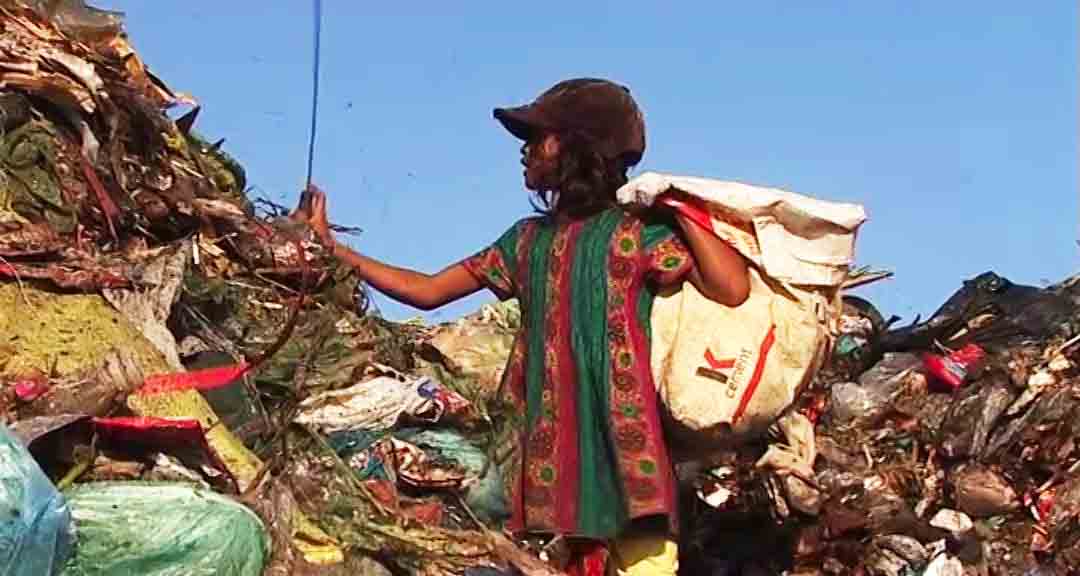One problem with poverty is that we don’t have to see it. Caught in the play-Penh bubble of SUVs, cappuccinos and air-conned BKK offices, even the most dedicated of NGO do-gooders can conveniently forget what’s all around us.
Yet Marc Eberle’s short film As Good As Gold doesn’t seek to punch us in the groins, nor does it overtly address the complex yet manifest issues that face this country. Its purpose is rather to remind us of how the other half live and how, even in the most pitiful circumstances, there can still be kinship and kindness.
Filmed over the course of just one day, the documentary is a snapshot of sassy 11-year-old garbage picker Srey Thoy, once cast as (you’ve guessed it) a garbage picker in the bleak German 2009 romance flick Same Same But Different.
But As Good As Gold is no Slumdog Millionaire melodrama. As much as anything, it’s about the technicalities of Srey Thoy’s plight on the infamous Stung Meanchey dump. Through Eberle’s dispassionate lens, we learn the details of how a typical day’s earnings tot up to a princely 2,000 riel. We contrast Thoy’s girlish daydreams of finding silver and gold to the cans, shit and condoms she and other children actually turn up, and her desperate and depressed mother’s resignation to the grind of extreme poverty.
In perhaps the movie’s most harrowing moment, Thoy calmly recalls a 17-year-old aunt’s death by dumpster truck, telling it just as bluntly as Eberle approaches the wider story. “It took a lot of trust for the subjects to speak as candidly as they do,” he notes.
The film had lain on the proverbial cutting-room floor since 2008, but the success of this year’s celebrity-narrated Girl Rising inspired the maker of Aung San Suu Kyi: The Choice to pick up where he had left off. “I didn’t feel that Girl Rising really wins on an emotional level and I wanted to approach a similar story but in a different way,” Eberle explains. “I wanted to show how the family’s realities are governed and to explain the structures that direct their lives.”
Despite the film’s undercurrent of righteous anger and the relentless personal tragedies of its subjects, Eberle is meticulous to avoid the extremes of ‘poverty porn’. “I want to show people respectfully and avoid the traps of poverty tourism or the ‘human zoo’, while looking at the things other people don’t want to see.” We are therefore spared potentially voyeuristic scenes of utter destitution, but there are also no Angelina Jolies swooping in with Louis Vuitton handbags full of admirable intentions, until a surprising deus ex machina moment in the final credits.
It’s striking too how, freed from the burden of voiceovers and editorial subjectivity, we are permitted to observe Thoy and her fellow garbage pickers shift from petty turf wars at one moment to a real sense of community in adversity the next. They fight, they argue and yet they trade their findings, even share food, all before a sweltering, smoking, stinking backdrop that puts Dante to shame.
“In the midst of this horror and dirt there are these kids, almost from Oliver Twist, playing and laughing and staying human,” Eberle concludes. “This is the gold I found.”
WHO: All but those who most need to see it
WHAT: Everyday hopes and heartbreak in Phnom Penh’s own abyss in As Good As Gold
WHERE: Meta House, #37 Sothearos Blvd.
WHEN: 7pm November 20
WHY: There but for the grace of God go we
